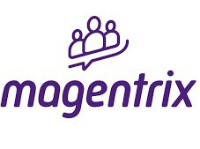Microsoft Dynamics 365 is a powerful cloud-based business application platform by Microsoft that combines Enterprise Resource Planning (ERP) and Customer Relationship Management (CRM) into a unified solution. It is designed to automate and optimize processes across sales, marketing, customer service, finance, human resources, and operations.
With seamless integration with Microsoft 365, the Power Platform, Azure, and artificial intelligence, Dynamics 365 enables businesses to gain full control over data, streamline repetitive tasks, accelerate decision-making, and quickly adapt to market changes. The platform is ideal for medium to large enterprises and organizations aiming for scalable growth and digital transformation.
Key Features and Modules of Microsoft Dynamics 365:
1. Sales
Automates sales pipelines, manages leads, forecasts revenue, and supports customer interactions at every stage. Built-in AI offers predictions and actionable next-step recommendations to boost conversions.
2. Marketing
A tool for planning, executing, and analyzing multichannel marketing campaigns. Features include email automation, audience segmentation, A/B testing, real-time analytics, and campaign performance insights.
3. Customer Service
Delivers omnichannel customer support via chat, email, phone, and social media. An AI-driven chatbot handles initial queries to speed up response times. A centralized dashboard offers a complete customer view.
4. Field Service
Optimizes field operations with intelligent scheduling, route planning, and real-time task tracking. Ideal for service-based businesses managing mobile workers and on-site jobs.
5. Finance
ERP module for automating financial operations including accounting, budgeting, expense tracking, compliance, and auditing. Embedded BI tools offer insights and financial forecasting.
6. Supply Chain Management
Manages inventory, logistics, manufacturing, and distribution. Helps reduce costs and delays while improving coordination across the entire supply chain.
7. Human Resources
Provides centralized management of the employee lifecycle, from recruiting and onboarding to performance tracking and training. Integrates with LinkedIn to support talent acquisition.
8. Commerce
Connects physical retail stores and digital channels into one seamless commerce experience. Manages product catalogs, orders, loyalty programs, and personalized customer journeys.
9. Project Operations
A robust project management tool that supports planning, resource allocation, budgeting, and reporting. Tracks project progress and profitability in real time.
Benefits of Microsoft Dynamics 365:
- Integration with Microsoft 365 (Word, Excel, Teams) and Power BI for collaboration and analytics
- Azure cloud infrastructure ensures high security, reliability, and scalability
- Modular design – use only the apps you need
- AI and machine learning capabilities for smarter decisions and automation
- Unified customer data for more accurate targeting and personalization
- Mobile access – work from anywhere with mobile-ready tools
- Low-code/no-code tools (Power Apps and Power Automate) for custom solutions without deep technical skills
Conclusion:
Microsoft Dynamics 365 is a flexible and powerful business application ecosystem designed to support the digital transformation of modern organizations. With its wide range of intelligent features, deep integration capabilities, and real-time data insights, Dynamics 365 helps businesses improve customer experiences, enhance efficiency, and grow with confidence.



































